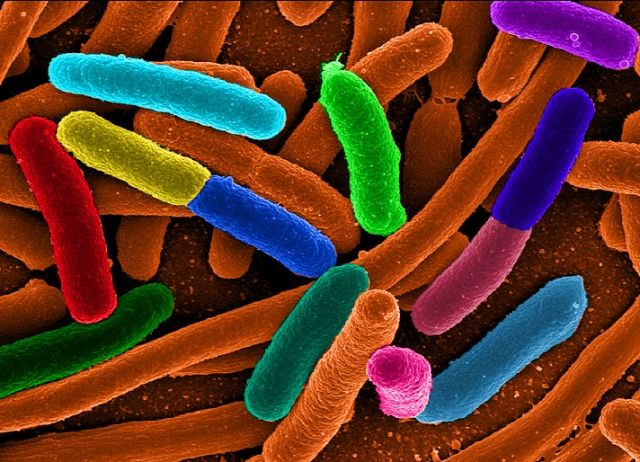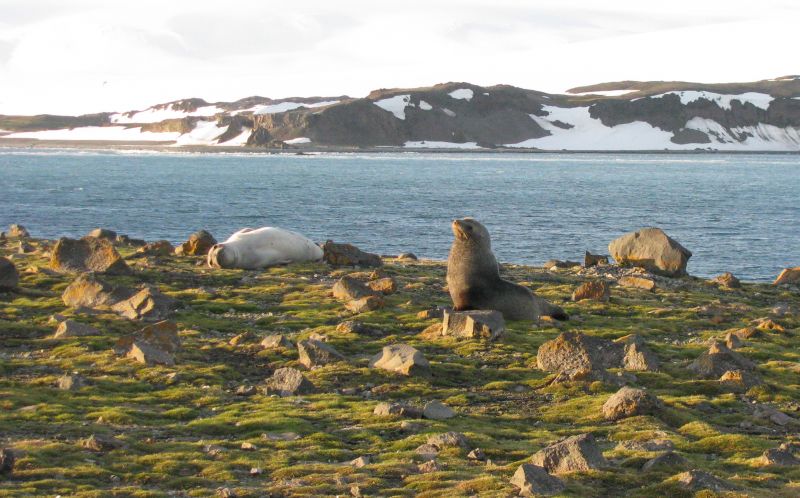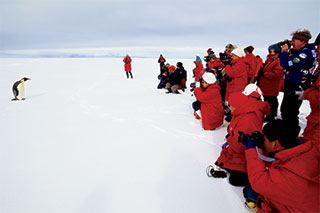Escherichia coli: Mattosaurus via Wikimedia Commons.
Escherichia coli bacteria are ubiquitous in the lower gut of warm-blooded critters, and because we’re warm-blooded and more or less ubiquitous on planet Earth, so are E. coli. While many strains are harmless, others are deadly. A new paper in Applied and Environmental Microbiology reports that one-fourth of seawater samples collected off Antarctica now contain E. coli that carry genes to make the enzyme ESBL. This enzyme is known to destroy antibiotics and is potentially more dangerous than the superbug MRSA. The contaminated seawater samples were found off three Chilean research stations, none of which deploy any form of sewage treatment. So far none of these superbug E. coli have been found in penguins. The researchers are beginning to investigate the local gulls. WTF, Chile? Clean your mierda.














